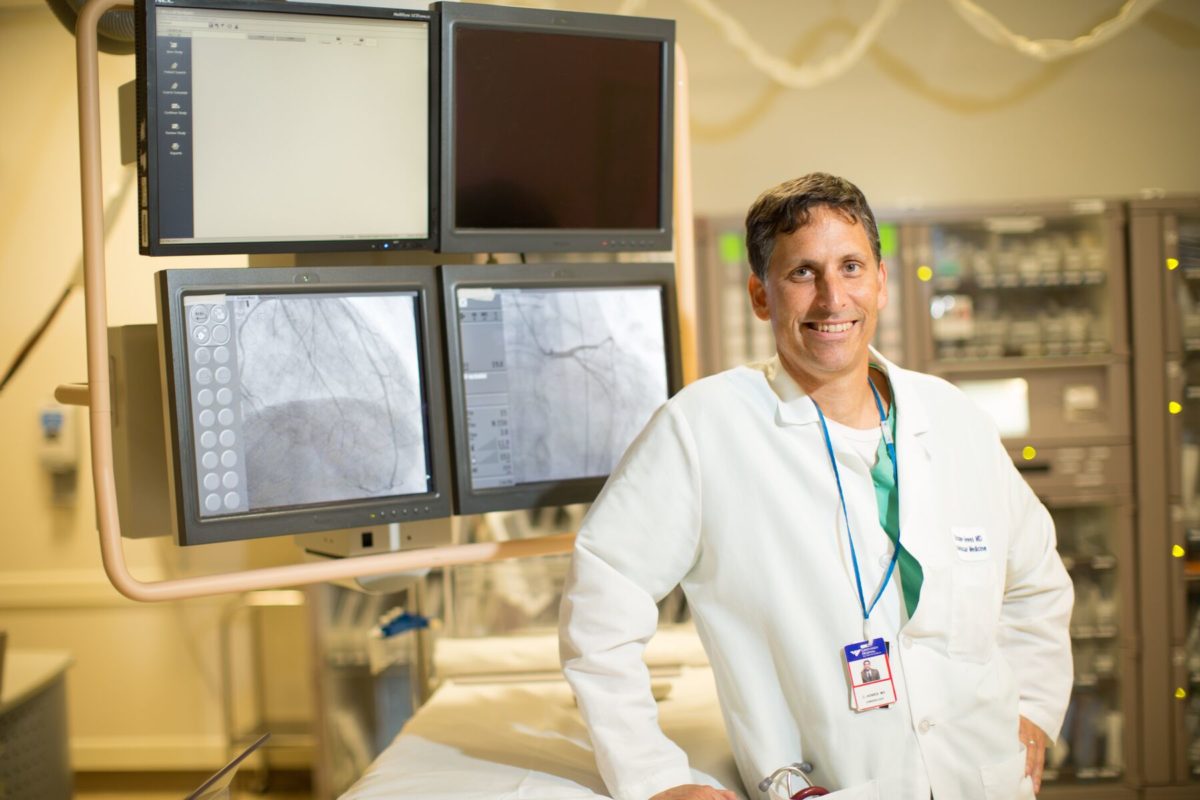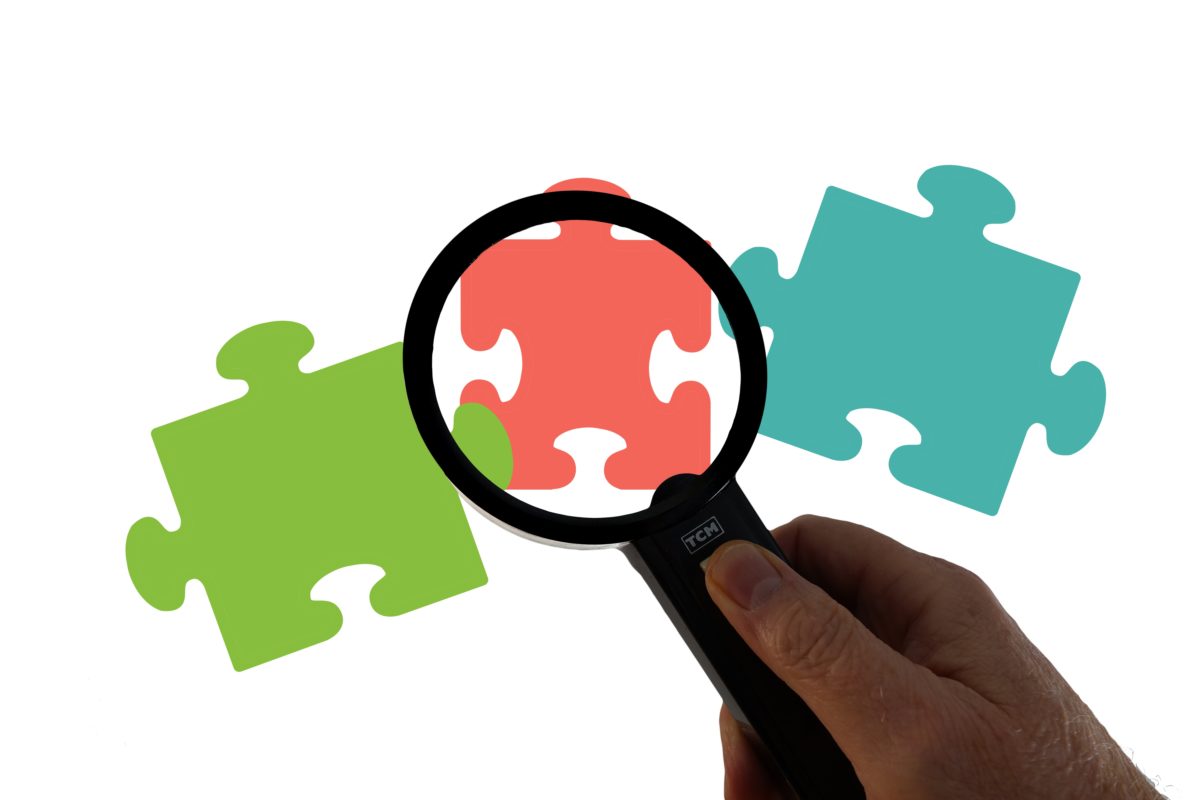
Heart disease is the nation”™s leading cause of death for men, women, and people of most racial and ethnic groups, according to data from the U.S. Centers for Disease Control and Prevention, which noted that one person in the U.S. dies every 34 seconds from heart disease.
In an exclusive interview with the Business Journals, Dr. Christopher Howes, an interventional cardiologist and section head for cardiology at Greenwich Hospital, discussed what can be done to lower the too-high fatality rates created by this medical condition.
We”™re coming to the end of February”™s Heart Health Month observances, and there are so many programs and information available about heart health. But heart disease is still the number one killer in America. How is this possible when there is so much information out there about how to take care of your heart? Why are more people dying from heart disease than anything else?
Well, that”™s certainly a pretty complicated big question. One of the things is atherosclerosis, hardening of arteries, which is a process that increases with age. So, as our population ages and we become an older group, we”™re going to have that ”” and fighting against this is a little bit like swimming upstream because you”™re always getting older.
But there are things we can do to decrease that progression and try to affect that overall outcome. One thing to keep in mind: although heart disease remains the top medical condition in our society, the actual mortality from heart disease has gone down a lot over the last 20 to 30 years. So, we are making progress, although the rate of progress is maybe not as much as some of us would hope for.
You know the expression ”˜you can lead a horse to water but you can”™t make it drink”™? Yes, people may or may not see or know what they can do for their heart health, and they still might have problems. Obviously, tobacco use is still a problem in our society. I don”™t know if you saw in New Zealand they are terminating tobacco sales ”” the people who are 18 years old are going to be the last people to ever be able to buy tobacco. If you”™re less than 18, when you become 18 next year you won”™t be able to buy it. They are acknowledging that tobacco is one thing we could do better as a society.
And then the bigger thing that”™s even more of a problem than tobacco is obesity and the metabolic problems that go with that. You can go to a heart healthy meeting from the American Heart Association or read something in a journal. But if you eat and drink and consume and not get exercise, those risk factors that result in vascular disease are going to continue to move forward. It”™s one thing to know some of the easy things to do on a lifestyle basis, but doesn”™t mean people will do them.
And unfortunately, there”™s a very strong socioeconomic bias to that ”” people in the lowest 25% of economy have as much as fourfold of diabetes as the people in the top 25%. That”™s a medical condition that probably should be determined by genetics, but maybe low-income people don”™t have the resources to go to the gym. Fast food and processed food is cheaper, but it promotes diabetes. So, there are a lot of social issues to heart health as well.
What impact did the Covid pandemic have on heart disease? For a while, people were not able to get to the hospital and keep their medical appointments ”” was there as a heart health spike because of the pandemic”™s the disruptions in health care?
There are three different things. Number one, Covid itself is associated with vascular disease. When we had uncontrolled, unvaccinated Covid, we saw a lot of strokes, a lot of atrial fibrillations, a lot of vascular events and pulmonary embolisms. I think that we”™re seeing less of that now, and maybe immunization vaccination has an impact on it.
The second thing, vaccination was associated with some reports of myocarditis and inflammation, pericarditis ”” we definitely saw some people who had that, but that”™s a small amount.
The third thing is this disruption in the health care system, which was already not functioning completely efficiently and smoothly. People getting out of the habit of going to the doctor, perhaps getting out of the habit of even taking their medications, not knowing what their blood pressure is, not knowing what their cholesterol is ”” that had a profound impact on increased cardiac disease, and also increased cancer and advanced cancer. There”™s a very serious price to pay for that.
Recently there have been news reports about more younger people having heart attacks. The most prominent was Damar Hamlin, the 24-year-old football player with the Buffalo Bills who collapsed on the playing field a few weeks ago. Are you seeing more young people seeking out information on heart health and heart disease?
He did not have a heart attack, he had a cardiac arrest ”” it”™s different. That was a very notable event, but it”™s not that unusual. We see things like that fairly commonly. Even though there”™s been a lot of initial popular interest in his condition. I”™m not aware of young people pursuing health or asking questions more.
Obviously, my ignorance is showing on the subject in misidentifying a cardiac arrest. But am I the only one who is ignorant in not being able to differentiate between cardiac arrest and heart attack?
Excellent question, and don”™t feel bad about that. I think that”™s very, very common, and it”™s a subtle thing but it makes a big difference in the way we think about patients. In fact, today, I saw a young guy who said the exact same thing: ”˜My dad died of a heart attack.”™ And it wasn”™t the case, he died of cardiac arrest ”” he probably died of something similar to what Mr. Hamlin had, and that is very common.
A heart attack is a specific condition with a specific kind of outcome. And, obviously, people can die from a heart attack. But there”™s lots of other stuff that people can die from. And in fact, the majority of patients who died from an acute cardiovascular event where they don”™t even make it to the hospital, that usually isn”™t a heart attack ”” it”™s usually something else.
I saw a headline in my newsfeed which said: “Here”™s how loneliness and isolation can increase your risk of heart disease.” What is the correlation between emotional stress and heart disease?
I think that”™s really hard to quantify. People are going to have some risk for cardiac disease, regardless of their social situation. But I think for years and years, we”™ve been aware of the strong relationship between emotional wellbeing, psychological health and medical health ”” and that”™s a powerful relationship.
That”™s why whenever we see any patient, either as a routine follow-up or as a new patient in the emergency room, we always acquire a social history to know what else is going on in their life. Stress and social isolation are not good for your health.
What advice would you give to somebody who appears to be in good health and doesn”™t think twice about heart disease? Is it something that should be front and center for them?
Well, the cornerstones of assessing cardiovascular risk are knowing what your family history is, because your genetics make a difference. If mom and dad live to be 90, you”™re probably a lot better off than if mom and dad died suddenly at age 50.
Knowing your blood pressure is important. You can”™t feel your blood pressure, and if you don”™t know what your blood pressure is you”™re doing yourself a disservice. And we spend a lot of time talking about cholesterol. There”™s a lot of pharmacological agents that we use for treating cholesterol, and treating blood pressure isn”™t quite as glamourous. But blood pressure is a really important medical condition that is strongly associated with heart attack, with heart failure and with stroke.
That”™s not to diminish the importance of knowing what your cholesterol is and knowing what the ratio of your cholesterol is ”” it not just the absolute number of how high the cholesterol is, but what that relationship and the good and the bad cholesterol is. There are non-pharmacologic means to correct your cholesterol ”” diet and exercise, those sorts of things make a lot of difference in that regard.
And then, the last thing is knowing one”™s risk for diabetes because diabetes is a very powerful predictor of heart disease.






















